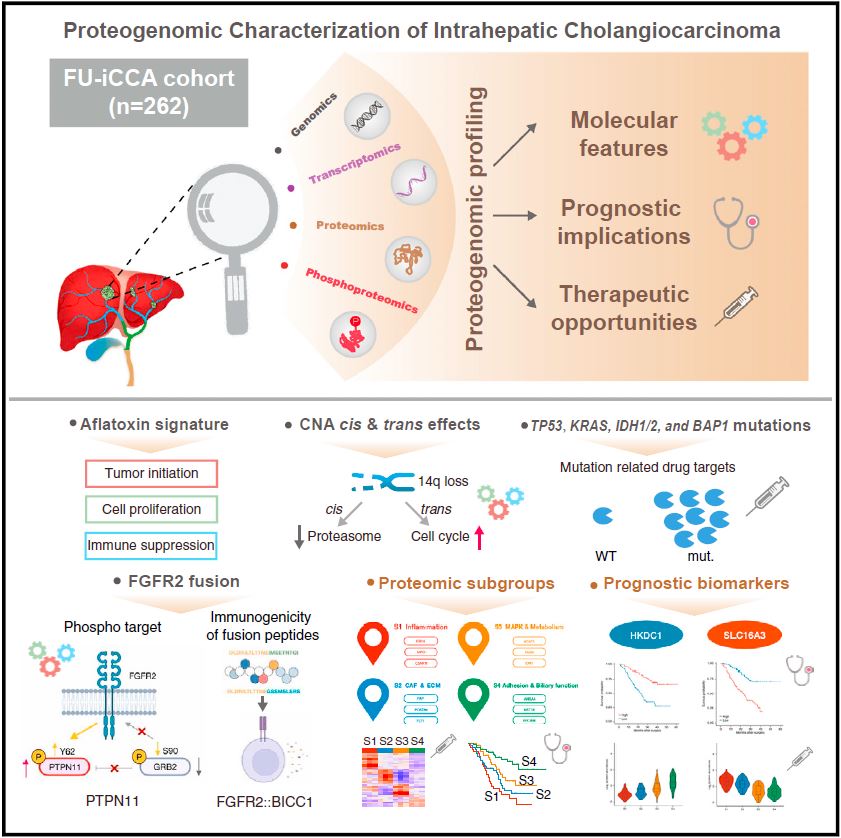Jurisdiction:
China
Organ System:
Liver
Funding Organizations:
- National Key Research and Development Program of China
- National Natural Science Foundation of China
- Strategic Priority Research Program of the Chinese Academy of Sciences
- Science and Technology Commission of Shanghai Municipality
Research Organizations:
- Fudan University, China
- Chinese Academy of Sciences, China
- Burning Rock Biotech, China
Principal Investigators
:- Jia Fan
- Hu Zhou
- Daming Gao
- Qiang Gao
Publication:
External Link:
We performed proteogenomic characterization of intrahepatic cholangiocarcinoma (iCCA) using paired tumor and adjacent liver tissues from 262 patients. Integrated proteogenomic analyses prioritized genetic aberrations and revealed hallmarks of iCCA pathogenesis. Aflatoxin signature was associated with tumor initiation, proliferation and immune suppression. Mutation-associated signaling profiles revealed that TP53/KRAS dual mutations may contribute to iCCA metastasis via the integrin-FAK/SRC pathway. FGFR2 fusion could lead to the activation of Rho GTPase pathway, and generate neoantigens for personalized immunotherapy. Proteomic profiling identified four patient subgroups (S1-S4) with subgroup-specific biomarkers. These proteomic subgroups had distinct features in prognosis, genomic alterations, microenvironment dysregulation, tumor microbiota composition and potential therapeutics. SLC16A3 and HKDC1 were further identified as potential prognostic biomarkers associated with metabolic reprogramming of iCCA cells. This study provides a valuable resource for researchers and clinicians to identify new molecular pathogenesis and therapeutic opportunities in iCCA.

